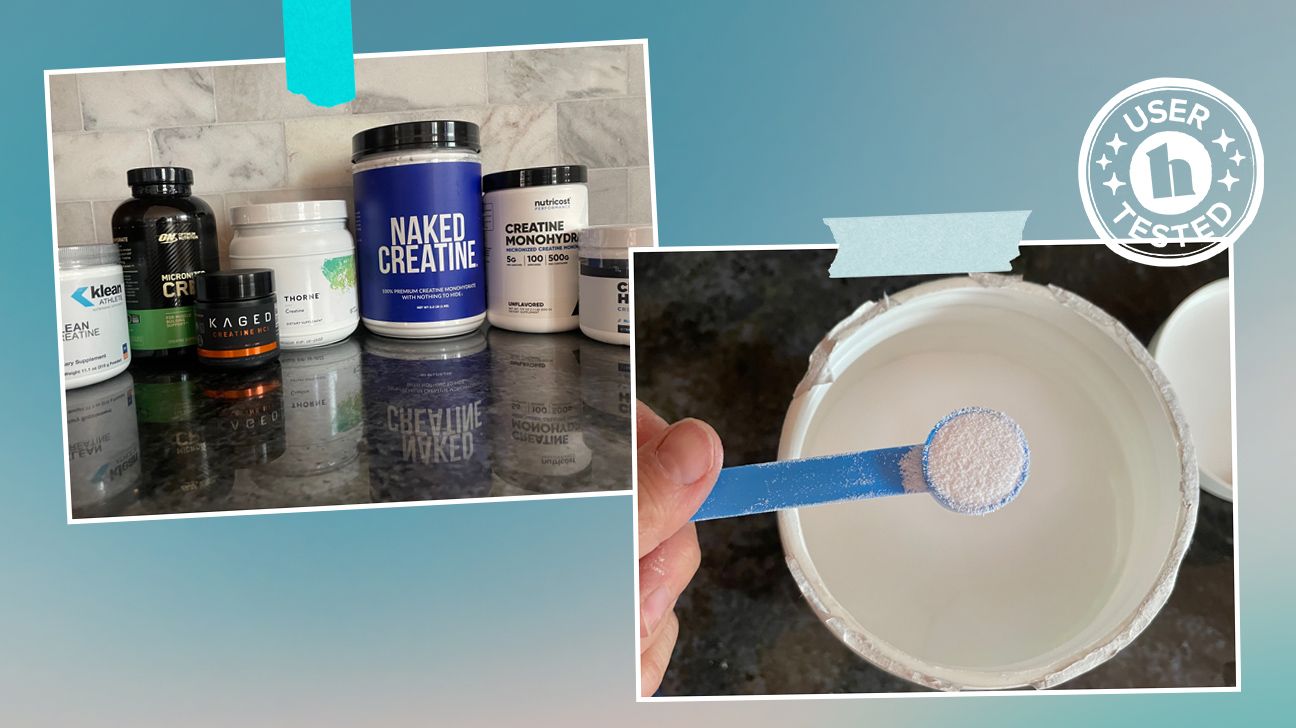Creatine For Her: Experts Reveal If Women Need a Different Supplement Strategy!

Creatine stands as one of the most extensively researched and low-risk supplements available, celebrated for its proven benefits in enhancing muscle energy and athletic performance. It empowers muscles to exert more effort, potentially allowing for additional repetitions during workouts or marginal improvements in sprint times. While these benefits can significantly impact high-performance athletes, even everyday exercisers can leverage this slight boost to achieve their fitness goals.
However, the supplement market has recently seen the emergence of products specifically branded as “creatine for women,” often distinguishable by their packaging and specific claims. This trend prompts a crucial question: Is there a genuine need for such sex-specific creatine formulations?

Photo Credit:Healthline
According to leading researchers, including Lauren Colenso-Semple, PhD, specializing in female physiology, exercise, and nutrition, and Abbie Smith-Ryan, PhD, associate chair for research at the University of North Carolina Chapel Hill, there is no scientific basis to support the differentiation of creatine products based on sex. They affirm that the physiological processes by which female bodies absorb and utilize creatine are identical to those in males. While women might naturally possess fewer creatine stores due to generally lower muscle mass, this does not necessitate a higher or different dose. The scientifically recommended dosage of 3 to 5 grams per day is effective and sufficient for both men and women.
A closer examination of products marketed as “creatine for women” reveals inconsistencies and often questionable claims. Many such products incorporate additional ingredients like collagen and branched-chain amino acids (BCAAs), and some make unsubstantiated assertions about their ability to specifically target glute growth or reduce cellulite. Experts like Colenso-Semple label these claims as “egregious,” highlighting the lack of scientific evidence.
Creatine's primary function is to provide an energy boost to muscles; while this can indirectly support muscle growth in any actively worked muscle group, there is no specific mechanism linking it solely to glute development. Furthermore, creatine alone will not drastically alter physique; body recomposition goals are best achieved through consistent, progressively overloaded training and adequate protein intake.
The inclusion of collagen and BCAAs in these specialized creatine products also raises concerns. Collagen is considered a suboptimal protein source for muscle growth, less effective than whey, pea, or soy proteins. Its primary use in supplementation is often for beauty purposes, such as skin health, despite limited proven efficacy for supplementation. Smith-Ryan explicitly states, “I’m not sure that collagen works; I’m sure that creatine works.” Similarly, BCAAs are often deemed an “old-school” and largely unnecessary supplement. For individuals consuming sufficient dietary protein or supplementing with protein powder, the body already receives a comprehensive array of amino acids, rendering BCAA supplementation redundant.
Beyond sex-specific branding, consumers may also encounter creatine HCL, a variant distinct from the more common and extensively studied creatine monohydrate. While some products claim creatine HCL is more concentrated and better absorbed, research indicates that creatine monohydrate is highly bioavailable, with approximately 4.9 grams absorbed for every 5 grams ingested. Creatine HCL often comes at a higher price point without offering a demonstrably superior benefit, leading experts to suggest it can be a “waste of money.”

Photo Credit: Google
Ultimately, the consensus among experts is clear: there is no compelling physiological reason for women to take a special form of creatine. While using a product marketed towards women is unlikely to cause harm, consumers should be mindful of two key factors. Firstly, creatine monohydrate is a relatively inexpensive supplement, and sex-specific brands often charge twice the cost for essentially the same core ingredient. A good price target is typically less than $0.50 per serving. Secondly, the additional ingredients often found in these specialized formulas lack the robust scientific backing of creatine itself.
The safety and efficacy of these mixtures are less established compared to pure creatine monohydrate. In conclusion, while the allure of a tailored product might be strong, women will not gain additional benefits from sex-specific creatine supplements and are better served by sticking to standard, well-researched creatine monohydrate.
You may also like...
Haaland's UCL Rampage: Brace, Record, and X-Rated Fury Rocks European Football!

Manchester City were held to a frustrating 2-2 draw against Monaco in the Champions League, despite Erling Haaland's two...
Manchester United's Managerial Maze: Amorim on the Brink, Solskjaer's Ghost Looms

Ruben Amorim faces unprecedented pressure at Manchester United as inconsistent results and a low Premier League standing...
Real-Life Couple Justin Long & Kate Bosworth Unleash 'Coyotes' Horror Comedy, Securing UK Deal

Real-life partners Justin Long and Kate Bosworth star in the new horror comedy and survival thriller “Coyotes,” a film t...
Kenyan Star Bahati Ignites Firestorm with Provocative New 'Seti' Track!

Bahati has ended his musical hiatus with the controversial new song "Seti," featuring explicit content that deviates fro...
Global K-Pop Domination Ignored by Grammys? A Critical Look

Korean pop music has achieved global megaforce status, dominating charts and captivating millions of fans worldwide. Des...
One Direction Reunites! Global Pop Idols Confirm Massive New Project

One Direction stars Louis Tomlinson and Zayn Malik are reportedly reuniting for a Netflix road trip documentary, set to ...
Royal Arrival: Victor & Henrietta Thompson Welcome Baby Princess Zivah!

Gospel singer Victor Thompson and his wife, Henrietta, have joyfully welcomed their baby girl, Zivah Ufuoma Tamunopakiri...
Viral Sensation: M&S 'Cuddle' Jumper Takes Autumn by Storm at Just £26

Discover the M&S Textured Crew Neck Jumper, a viral sensation perfect for colder days. Praised for its luxurious feel, v...



